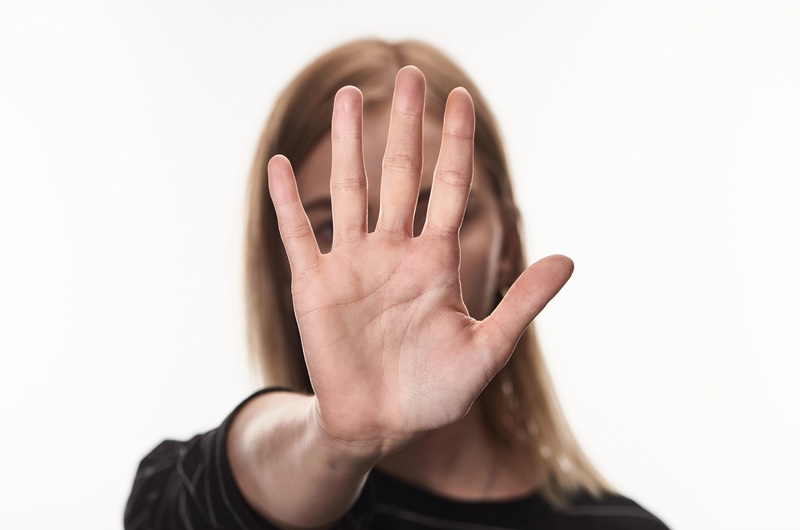VAWA Self-Petitioning: 10 Facts You Need To Know
If you have been a victim of domestic violence, it is important to understand your choices to seek protection. One significant avenue provided by the law is the VAWA self-petitioning process. It allows survivors of domestic violence, married to U.S. citizens or permanent residents, to apply for a Green Card. It occurs without the assistance or sponsorship of their abusive spouse.
In this article, you will explore ten essential facts about VAWA self-petitioning. It will help you navigate this critical pathway toward safety and legal security.

The VAWA Self-Petition
The Violence Against Women Act (VAWA) is a significant law that deals with domestic abuse, sexual assault, dating violence, and stalking. It aims to create effective and affordable responses to these crimes. Since its inception in 1994, VAWA initiatives have dramatically altered how federal, tribal, state, and municipal governments manage these challenges.
One crucial aspect of VAWA is the ability of immigrant victims to self-petition for immigration benefits. Under this act, eligible survivors subjected to battery or extreme cruelty by a U.S. citizen or permanent resident spouse, child, or parent can file a self-petition. They can do that without relying on the abuser to sponsor their immigration status.
The self-petition also provides a pathway for immigrant survivors married to abusive U.S. citizens or permanent resident spouses to obtain lawful permanent residence. Approved VAWA self-petitioners may be eligible to apply for a Green Card without the abuser’s involvement.
Additionally, VAWA offers certain protections for immigrant survivors who may be afraid to come forward due to their immigration status. It allows for the confidentiality of information shared in the self-petition process, ensuring that the abuser cannot access the survivor’s personal information without their consent, except in limited circumstances involving national security or public safety.
By integrating immigration law and protections for violence survivors, VAWA recognizes the intersectionality of immigration status and gender-based violence.
10 Facts About VAWA Self-Petition
Victims of domestic violence often face numerous challenges when seeking legal status and protection in the United States. However, a vital avenue is available to them known as VAWA self-petition. Learn more about these key facts to help you better with the process.
Allows You To File A Petition Independently
The self-petition ensures that these survivors can seek protection and legal status independently. It takes place without depending on their abusive partners for immigration benefits. It allows survivors to apply for a Green Card (lawful permanent residency) without involving their abuser. Additionally, it gives them control over their immigration status and helps them escape abusive relationships.
VAWA Is Also Applicable To Men
While the self-petition primarily focuses on protecting women from violence, it also acknowledges that men can be victims. The law ensures that men can access the same protections and support services as women. This inclusive approach promotes equality and powerfully conveys that violence is unacceptable regardless of gender. It aims to support all victims and break down stereotypes surrounding male victims of violence.
Emotional Abuse Qualifies For VAWA
Emotional abuse from your U.S. citizen or lawful permanent resident spouse, parent, or child is one of the qualifications. You need to demonstrate that the emotional abuse you experienced was severe. It should have caused significant harm to your mental well-being, such as in cases of battery or extreme cruelty. This provision ensures that emotional abuse victims can seek protection and support under this law.
Recognizing emotional abuse as a qualifying factor empowers individuals to break free from unhealthy relationships. It provides a pathway to safety and rebuilding their lives.
The Self-Petition Is Confidential
Confidentiality is a crucial and compelling aspect of VAWA self-petition. The law acknowledges that revealing information about it to the abuser could place the victim at even greater risk. To ease this worry, the procedure protects the petitioner’s information.
It ensures their safety and well-being above all else. By prioritizing confidentiality, the Violence Against Women Act empowers victims to seek justice without fear of retribution. They foster an environment of security and support for those who have suffered domestic violence, sexual assault, or stalking.
You Can Enjoy Certain Benefits
VAWA provides a significant advantage for survivors by allowing them to live in the United States without fearing deportation. If their self-petition is successful, they may be eligible for essential immigration benefits. It includes the opportunity to apply for lawful permanent residency, also known as a Green Card.
They can also obtain work authorization, enabling them to support themselves legally. These benefits give survivors stability and the chance to rebuild their lives with safety and security.
You Can Explore U Visa Option
In addition to VAWA self-petition, victims of certain crimes can apply for a U visa. The U visa offers temporary legal status and work authorization to individuals. These people must have experienced significant physical or mental abuse and be willing to assist law enforcement.
It provides a way for victims to stay in the United States legally. They can also work lawfully during this period. The U visa aims to support those who have suffered abuse while encouraging their cooperation with law enforcement agencies.
VAWA Self-Petitions Require Supporting Evidence

It is essential to offer supporting documentation, such as police reports, medical records, and photos, to strengthen your self-petition. Affidavits from witnesses or other documentation proving the abuse or cruelty experienced may also be necessary.
These types of evidence can provide concrete proof of the abuse and validate your claims. Remember to gather relevant evidence, organize it effectively, and ensure its quality and credibility to strengthen your self-petition.
Victims Have Access To Services
VAWA self-petitioning helps immigrant victims of domestic violence, sexual assault, or stalking receive support from various organizations. They can obtain access to specific services affordable to them. It includes counseling and support, shelter and housing assistance, and medical care. Such provisions create a safe future for survivors and their children, recognizing their unique challenges.
No Citizenship Requirement
It means individuals can seek assistance and protection regardless of their citizenship status. Irrespective of their nationality, immigrant victims of domestic violence have access to support.
This provision removes barriers for survivors, allowing them to seek help without worrying about their immigration status. It empowers them to receive assistance without any hindrance related to their citizenship.
No Reconciliation Required
The VAWA self-petition does not require the victim and the abuser to reconcile their relationship. The primary focus of this self-petition is to provide assistance and protection to victims of domestic violence. It allows them to seek legal status independently.
Understanding these facts is crucial in recognizing the immense support and opportunities it provides victims. To navigate the complexities of the process, the guidance of immigration attorneys plays a pivotal role. They ensure that people receive necessary legal assistance and representation.
The Role Of Immigration Attorneys
The assistance of immigration attorneys in the VAWA self-petition process is invaluable. These legal professionals are knowledgeable in immigration law and well-versed in the application intricacies.
Immigration lawyers assess the survivors’ eligibility for VAWA self-petition. They carefully evaluate the circumstances and gather the necessary evidence to establish the qualifying factors. It includes abusive relationships, the abuser’s status, and the impact of maltreatment on the victim.
They assist survivors in preparing and submitting their self-petition applications. Additionally, they ensure that all required documentation is gathered and properly presented. It includes affidavits, police reports, medical records, and other evidence that strengthens the case. Attorneys help them deliver their stories effectively and persuasively. They emphasize the severity of the abuse and its impact on their lives.
A legal representative plays a role in communicating with the United States Citizenship and Immigration Services (USCIS) on behalf of the victim. They handle any inquiries, respond to requests for additional evidence, and advocate for the survivor’s rights throughout the process.
They also explain the intricacies of immigration law, the rights and options available to survivors, and the potential challenges they may face. A skilled lawyer ensures victims are informed and empowered to make well-informed decisions regarding their VAWA self-petition.
In cases where they encounter obstacles or face denials, immigration attorneys can provide representation in appeals or before a judge.
The Violence Against Women Act (VAWA) offers legal protections to victims of domestic violence, sexual assault, dating violence, and stalking. The self-petition process allows a survivor who is the spouse, child, or parent of a U.S. citizen or permanent resident to apply for a Green Card independently.
There are ten crucial facts about the self-petition to assist victims in finding safety and legal security. VAWA recognizes that men can also be victims and ensures equal access to support. It is also important to remember that emotional abuse qualifies for self-petitioning, and the process maintains confidentiality to protect survivors. Additionally, successful self-petitioners can access immigration benefits and obtain essential services.
Immigration attorneys are vital in guiding survivors through the process and providing legal representation. Understanding these facts and seeking professional guidance can help individuals access necessary support.
Contact A U.S. Immigration Attorney Today!
Categories
How To Find Us
What Our Clients Say
“This Lawfirm is great, very professional and helpful. I love that they are always in communication and always available for when you have questions . 100% recommended by me and my family. Thank you Lincoln-Goldfinch Law – Abogados de Inmigración”





